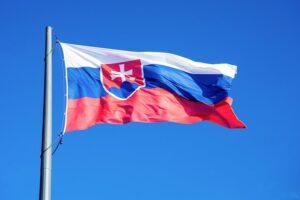Slovakia extends the ban on the import of Ukrainian agricultural products indefinitely
Slovakia will extend the ban on the import of agricultural products from Ukraine for an indefinite period of time and extend it to several products – the government in Bratislava decided on this at its meeting on Wednesday.

(Photo: Pixabay)
The Slovak import ban has so far applied to four products: wheat, corn, rape and sunflower. The current decision extends the import ban to other agricultural products, including barley, wheat flour, honey, malt, soy, sugar and by-products from the production of cooking oil. Richard Takác, the head of the Slovak Ministry of Agriculture, which submitted the proposal for the extension, justified the move by saying that the uncontrolled influx of Ukrainian agricultural products makes it impossible for Slovakian agricultural producers, to whom the import of Ukrainian products has already caused 110 million euros (about HUF 40 billion) in damage. “Importing Ukrainian agricultural products causes serious financial losses and other problems for the countries neighboring Ukraine. Last year, agricultural producers quantified the damage caused to them by Ukrainian grain imports at 110 million euros. The European Commission’s compensation for Slovakia was at the level of 5 million euros,” said Richard Takác to the Slovak public service news agency TASR in relation to the import ban affecting a total of 14 products. He stated that the Slovak government will put pressure on the European Commission in order for the union to come forward. with a European-level solution to the problems arising from the import of agricultural products from Ukraine. He pointed out that although Ukrainian agricultural products were originally only transiting through the European Union, practice shows that 80 percent of the affected products remain in the EU. Slovakia decided back in September that – Similar to Hungary and Poland – it maintains the ban on grain imports from Ukraine under national jurisdiction, after the Brussels committee did not extend the EU-level measure that expired on September 15.
MTI
Related news
European Court of Auditors: EU Commission proposals affecting the common agricultural policy may cause uncertainty
🎧 Hallgasd a cikket: Lejátszás Szünet Folytatás Leállítás Nyelv: Auto…
Read more >EU Council approves changes to agricultural rules to boost competitiveness
🎧 Hallgasd a cikket: Lejátszás Szünet Folytatás Leállítás Nyelv: Auto…
Read more >Related news
II. Green Gastronomy – Marketing Communication Workshop organized by the MMSZ HoReCa and Green Section
🎧 Hallgasd a cikket: Lejátszás Szünet Folytatás Leállítás Nyelv: Auto…
Read more >Retail sales of organic products in Hungary increased by 13.9% – our country is the second fastest growing market in the European Union
🎧 Hallgasd a cikket: Lejátszás Szünet Folytatás Leállítás Nyelv: Auto…
Read more >







